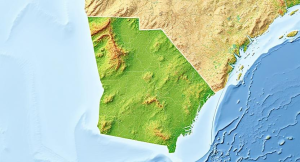In Georgia, fertilizer registration is a vital process to ensure that fertilizers sold within the state meet established safety, quality, and environmental standards.
The Georgia Department of Agriculture (GDA) oversees the registration process to guarantee compliance with state regulations.
This article provides a comprehensive guide to the fertilizer registration process in Georgia, outlining the steps involved, necessary documentation, and the benefits of compliance for both manufacturers and consumers.
What is Georgia Fertilizer Registration?
Georgia fertilizer registration is a legal requirement for any fertilizer product that is sold or distributed in the state. This process ensures that fertilizers adhere to the state’s standards for labeling, nutrient content, and safety. Manufacturers must register their fertilizer products with the Georgia Department of Agriculture (GDA) before distributing them within Georgia.
Successful registration allows fertilizers to be sold legally in Georgia, providing confidence to consumers and farmers regarding their quality and safety. The GDA ensures that only compliant products reach the market, reducing potential risks to the environment and public health.
Why is Georgia Fertilizer Registration Important?
The fertilizer registration process in Georgia plays a critical role in:
- Ensuring Product Safety: Registration verifies that fertilizers are safe for use and comply with Georgia’s regulations.
- Enhancing Agricultural Productivity: Registered fertilizers provide farmers with reliable products to boost crop yields and improve soil health.
- Protecting the Environment: Compliance with registration requirements minimizes risks of nutrient runoff and environmental pollution.
The Georgia Fertilizer Registration Process
Manufacturers must follow these steps to register their fertilizers in Georgia:
1. Gather Required Documentation
To start the registration process, manufacturers need the following documents:
- Product Label: The label must include detailed information about the fertilizer’s composition, application instructions, and safety precautions.
- Nutrient Analysis: A report showing the levels of key nutrients like nitrogen, phosphorus, and potassium in the fertilizer.
- Safety Data Sheets (SDS): Documentation outlining the chemical properties, hazards, and handling procedures for the fertilizer.
Accurate and complete documentation is essential to avoid delays in the approval process.
2. Submit the Application
Once all necessary documents are ready, manufacturers can submit their registration application to the Georgia Department of Agriculture. Applications can often be submitted online or by mail, depending on the manufacturer’s preference. Be sure to include all required documentation and pay the applicable registration fees.
3. Pay the Registration Fees
Registration fees vary based on the type and quantity of fertilizer being registered. Manufacturers should consult the GDA’s fee schedule to ensure the correct amount is paid. Prompt payment is critical to avoid delays in processing.
4. GDA Review
The Georgia Department of Agriculture reviews all applications to ensure that fertilizers meet state standards for labeling, safety, and nutrient content. If any issues are identified, the GDA will contact the manufacturer to resolve them.
Once the fertilizer passes the review process, it will be approved for sale and distribution in Georgia.
5. Receive Registration Certificate
Approved fertilizers will receive a registration certificate from the GDA. This certificate is required for the legal sale and distribution of fertilizers in Georgia. Registrations are generally valid for one year and must be renewed annually to maintain compliance.
Challenges in Georgia Fertilizer Registration
Some common challenges faced during the registration process include:
- Incomplete Documentation: Missing or inaccurate documents can delay approval.
- Labeling Issues: Errors in labeling may require revisions before approval.
- Fee Payment Delays: Failure to pay registration fees on time can stall the process.
Benefits of Fertilizer Registration in Georgia
Registering fertilizers in Georgia offers numerous benefits, including:
- Legal Compliance: Ensures that products meet state regulations and can be sold legally.
- Market Access: Allows manufacturers to distribute their fertilizers across Georgia.
- Consumer Confidence: Registered fertilizers provide assurance of quality and safety to farmers and other buyers.
Environmental Considerations in Fertilizer Registration
The Georgia Department of Agriculture prioritizes environmental protection in the fertilizer registration process. Registered fertilizers must meet standards designed to minimize environmental risks, including nutrient leaching and water pollution.
Georgia Fertilizer Registration FAQs
1. Is fertilizer registration mandatory in Georgia?
Yes, all fertilizers sold or distributed in Georgia must be registered with the Georgia Department of Agriculture (GDA).
2. What documents are required for fertilizer registration in Georgia?
Manufacturers need to submit a product label, nutrient analysis, and safety data sheets (SDS).
3. How long does the fertilizer registration process take in Georgia?
The process typically takes a few weeks, depending on the completeness of the application and review requirements.
4. How much does fertilizer registration cost in Georgia?
Fees vary based on the type and quantity of fertilizer. Check the GDA website for a detailed fee schedule.
5. Can fertilizers be sold in Georgia without registration?
No, selling unregistered fertilizers in Georgia is illegal and may result in penalties.
6. Can the registration application be submitted online?
Yes, the Georgia Department of Agriculture provides an online portal for fertilizer registration.
7. How often must fertilizer registrations be renewed in Georgia?
Registrations are typically valid for one year and must be renewed annually to maintain compliance.
Conclusion
Georgia’s fertilizer registration process is crucial for ensuring the safety and quality of fertilizers sold in the state. By complying with the Georgia Department of Agriculture’s guidelines, manufacturers can access the Georgia market, support agricultural productivity, and protect the environment.
Understanding and adhering to the fertilizer registration requirements is essential for manufacturers and benefits consumers by providing safe, high-quality fertilizers.
Recent Posts
When To Apply Liquid Copper Fungicide?– Expert Recommendations
Applying liquid copper fungicide at the correct time is essential for maximum disease control and plant safety. Because copper functions as a protectant fungicide, it must be applied before infection...
Do I Need To Wear A Mask When Spraying Copper Fungicide? 10 Best Reasons Why
Spraying copper fungicide is a common practice in gardening and agriculture, but many people underestimate the health risks associated with inhalation exposure. Fine copper particles and aerosolized...